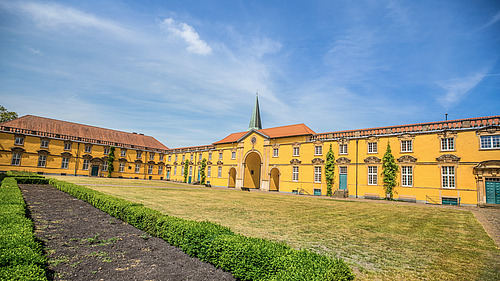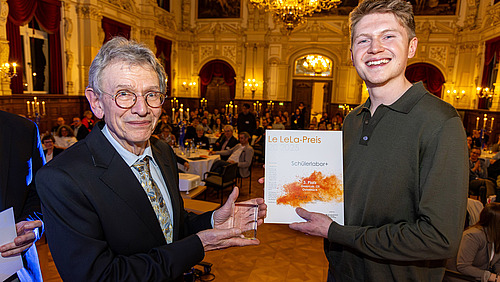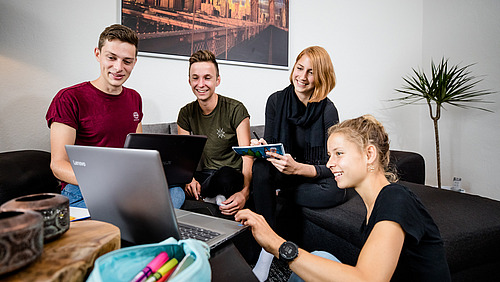The competition was organised by the Berkeley Center for Responsible, Decentralised Intelligence (RDI); the Osnabrück team took an impressive second place in the "Benchmarking" category.
With their innovative iVISPAR project, Julius Mayer, Mohamad Ballout, Serwan Jassim and Prof. Dr Elia Bruni from the Natural Language Processing Lab, together with Dr Farbod Nosrat Nezami from Neuroinformatics, impressively demonstrated their skills in AI development.
The hackathon attracted more than 3,000 participants from 127 countries, including more than 1,100 universities and 800 companies. This makes it one of the largest AI hackathons in the world. Over the past few months, 28 judges have evaluated the submitted project materials consisting of source code, extensive documentation and presentation videos.
"For us, second place is a great confirmation of our work and our commitment to AI development," says Julius Mayer, who was instrumental in designing and realising the project. The team won compute credits worth 8,300 euros for various platforms such as Google Cloud, Lambda and Timber AI Cloud and was invited to present its project in Berkeley, California, in August 2025.
In the "Benchmarking" task area, the challenge was to develop a standardised test that could be used to test and compare different AI agents. "Our iVISPAR project tests the spatial reasoning abilities of AI agents based on vision language models (VLMs) using a simulator. Modern AI models that process images and text in combination still have difficulties with spatial reasoning. The test results show that these models are still a long way from the human cognitive level in this area," says Mayer.
More about the team and their iVISPAR project
Further information for the media:
Julius Mayer, University of Osnabrück
Institute of Cognitive Science
julius.mayer@uos.de





